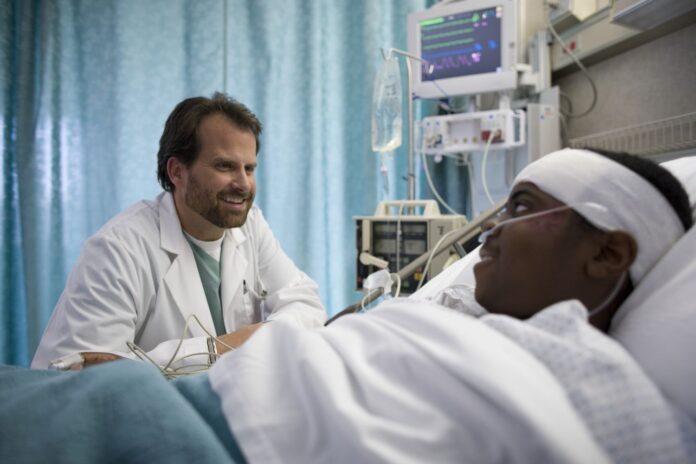A surgical procedure is an easy thing to dread. Whether it’s you going under the knife, or someone close to you, it’s easy to spend the days and weeks leading up to the event thinking about exactly what’s going to happen when you get to the hospital.
But it’s worth also thinking about what’s going to happen as you recover from the procedure. After all, that’s the phase that you actually have control over. There are a few steps you might take to make life easier during this period and to aid the recovery process.
Frequently Asked Questions
After the surgery, you’ll want to know exactly how the operation went. Make sure that you have in mind a few questions for when you come around. The first and most obvious question might be: ‘did the operation go as expected?’, but you should also ask about the prognosis for recovery. You might want to take notes – or even (with permission) film the conversation.
Following Medical Aftercare
Every surgical procedure is different, and thus to an extent, your recovery will be tailored to your needs. Some people will be able to get back to normal relatively quickly and with minimal intervention. Others will need to be cared for more stringently.
Your doctor should provide you with the appropriate treatment after your surgery. If they fail to do so, then complications may result. This is a rare situation, but medical professionals who make this sort of error leave themselves vulnerable to surgical error claims.
Avoiding Blood Clots
If you’re spending the recovery period lying in bed, then you put yourself at risk of blood clots – because blood will naturally pool in your legs. As soon as it’s reasonably possible, you should perform preventative exercises. This might mean simply flexing and rotating your legs.
Other anti-clot measures include support stockings and blood thinners. Again, you should be provided with whichever treatment is appropriate.
Aiding Recovery
In general, the sooner you can be up and active again, the more quickly and safely you’ll recover. This doesn’t mean rushing, however – moving too fast and you’ll risk causing a setback. Short walks, being mobile around the home, and eating and drinking will all help. Build your strength back up gradually. If you’re in doubt over whether you should be doing something, then it’s best to listen to your body and err on the side of keeping a little bit mobile!
Preparing for Home
We should also think about the first minutes and hours after you are discharged from the hospital. You’ll want all of the appropriate equipment and care in place ahead of time. This might mean walking sticks, frames or wheelchairs. Most importantly, you should have a means of getting home. You won’t want to be driving!
Read Also
- The Role of Ingredients in Your Skincare: What to Look ForSkincare works best when you understand what goes into the products you use daily. Ingredients form the foundation of every formula and determine how the skin reacts over time. Each cream, cleanser, or serum has its own role, determined by its ingredients. Learning what to look for helps you pick products that help skin and… Read more: The Role of Ingredients in Your Skincare: What to Look For
- Your Guide to Finding a Trusted DentistChoosing the right dentist in Sandgate or your area is crucial for maintaining good oral health and achieving a confident smile. With countless dental practices to choose from, patients may find the task daunting. Data from the American Dental Association indicates that there are over 200,000 practicing dentists in the United States, highlighting the importance… Read more: Your Guide to Finding a Trusted Dentist
- Achieving a Defined, Balanced Facial Contour in SingaporeA well-defined jawline and a gently tapered lower face — commonly referred to as a V-shaped face — is a look many people aspire to. In Singapore’s beauty and aesthetic scene, treatments that help refine facial contours have grown in popularity as more individuals seek subtle, natural enhancements that boost confidence and balance facial features.… Read more: Achieving a Defined, Balanced Facial Contour in Singapore
- The Wellness Blueprint: How Your DNA Holds the AnswerGenetic testing is revolutionizing preventive healthcare by offering insights into individual health risks. By analyzing DNA, these tests provide a personalized health blueprint that can guide lifestyle and medical decisions. This approach, often referred to as DNA wellness testing, helps to optimize health naturally and prevent potential diseases. In recent years, genetic testing has become… Read more: The Wellness Blueprint: How Your DNA Holds the Answer
- Exploring the Benefits of Infusion Therapy in OKC: The Ultimate GuideUnderstanding Infusion Therapy: A Deep Dive into Its Purpose and Process What exactly is Infusion Therapy? Infusion therapy is an advanced medical treatment that delivers medication and nutrients directly into the bloodstream through a vein, typically via an IV (intravenous) line. This method is particularly beneficial for patients who require a concentrated dose of medication,… Read more: Exploring the Benefits of Infusion Therapy in OKC: The Ultimate Guide
- Ketamine-Assisted Therapies: Impacts on Employee WellbeingWorkplace stress is common today. Many employees feel tired, anxious, or burned out. Regular therapy can help, but some people need more support. Ketamine-assisted therapy is showing good results for mental health. A ketamine-assisted therapist guides each session safely. This therapy can improve mood, focus, and energy. Learning more about it can help teams stay… Read more: Ketamine-Assisted Therapies: Impacts on Employee Wellbeing
- The Future of Men’s Health: Why Telehealth Is Here to StayTelehealth isn’t just a pandemic trend that faded into the background. For Australian men, it has become one of the most practical, time-saving, and stress-free ways to manage everyday health — and it’s shaping the future of how we access care. Platforms like DOCTO, an Australian online doctor and specialist telehealth service, are leading the… Read more: The Future of Men’s Health: Why Telehealth Is Here to Stay








